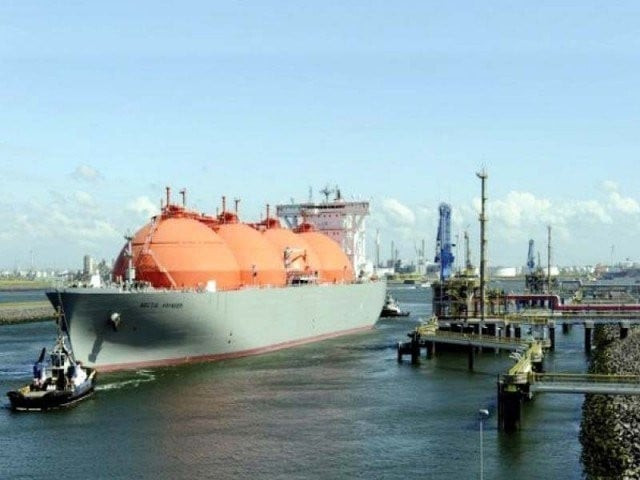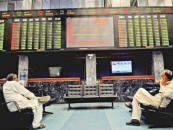World Bank opposes state monopoly over LNG import
Recommends participation of private sector to encourage competition and reduce prices

Recommends participation of private sector to encourage competition and reduce prices. PHOTO: FILE
Although Pakistani officials told all multilateral donors that the government would reduce its involvement in the energy product business, it has set up Pakistan LNG Terminal and Pakistan LNG Limited to take over control of terminals, LNG import and its marketing, denying any share to the private sector.
Govt to import gas exclusively for power plants
“The establishment of such companies will result in a further increase in prices of imported gas, making it unviable for the consumers,” said an official familiar with the development.
The government’s involvement in the LNG business upset World Bank officials in a recent meeting held in Islamabad. “The bank was shocked to know that state companies were involved in the entire LNG chain including marketing,” the official added.

At present, state-owned companies have full control over LNG supplies and its marketing. Pakistan State Oil (PSO) has signed a long-term LNG supply deal with Qatar, which will be marketed by gas utilities.
“On the one hand, the government of Pakistan is privatising state-owned enterprises and on the other, it has kept LNG import and its marketing in its fold,” World Bank representatives told Pakistani officials and other stakeholders.
The gas utilities have monopoly over gas distribution and marketing that has created hurdles in the way of private sector. Now, the government wants monopoly over LNG imports.
Contract for second LNG terminal to be awarded today
Earlier, PSO was assigned the task to import LNG but now the government has set up Pakistan LNG Limited for purchasing and marketing LNG.
By keeping control over gas imports, the government has denied competition. The private sector could import at competitive rates, but imports by state companies would push prices higher.
“Consumers will suffer as they are forced to pay different charges and margins to state gas companies,” the official said.
The World Bank officials suggested that Pakistan should work on a 60:40 formula for awarding some pipeline capacity to the private sector.
“State-run companies should keep 60% capacity while 40% capacity should be given to the private sector for the transport of imported gas to its clients. There will be a tariff arrangement between the supplier and its clients which will lead to healthy competition,” they added.
They also proposed a two-tier system of gas pricing. Tier-1 will cover local natural gas supplies whereas tier-2 will be related to imported gas.
In tier-1, the World Bank proposed the regulation of natural gas prices. It wanted the government to divert the gas to domestic consumers that had been facing load-shedding in the winter season every year whereas imported gas should be diverted to the industrial and commercial consumers.
Gas utilities: World Bank recommends single transmission firm
The World Bank ruled out the role of government in determining the imported gas prices and said the gas distribution companies - Sui Northern Gas Pipelines Limited (SNGPL) and Sui Southern Gas Company (SSGC) - should be allowed to determine gas prices without involvement of the government.
At present, the federal government has authorised the Oil and Gas Regulatory Authority (Ogra) to regulate the imported gas prices.
The World Bank suggested deregulation of gas prices, which would allow market forces to determine the prices. It also wanted the government to put the burden of imported gas on respective consumers.
Furthermore, it suggested splitting the distribution network of gas utilities and establishing different small distribution companies. The consumers of distribution companies should pay different prices in their respective areas.
Published in The Express Tribune, July 27th, 2016.
Like Business on Facebook, follow @TribuneBiz on Twitter to stay informed and join in the conversation.


















COMMENTS
Comments are moderated and generally will be posted if they are on-topic and not abusive.
For more information, please see our Comments FAQ